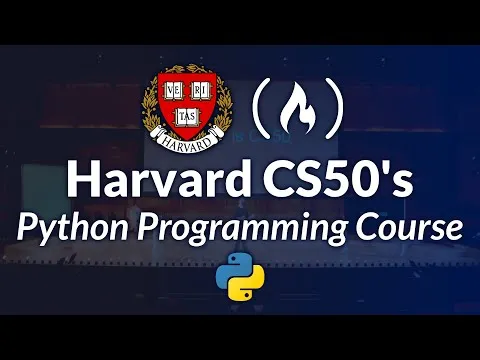
Symfony 3 Fundamentals: Bundles Configuration & Environments 
Get a comprehensive overview of Symfony 3 Fundamentals: Bundles Configuration & Environments ▼
ADVERTISEMENT
Course Feature
![]() Cost:
Cost:
Paid
![]() Provider:
Provider:
SymfonyCasts
![]() Certificate:
Certificate:
Paid Certification
![]() Language:
Language:
English
![]() Start Date:
Start Date:
On-Demand
Course Overview
❗The content presented here is sourced directly from SymfonyCasts platform. For comprehensive course details, including enrollment information, simply click on the 'Go to class' link on our website.
Updated in [May 19th, 2023]
This course, Symfony 3 Fundamentals: Bundles Configuration & Environments, is designed to help developers understand the fundamental concepts of bundles, configuration and environments in Symfony 3. After completing the first course, Joyful Development with Symfony3, developers will have Symfony up and running. This course will help them get down to work by learning the fundamental concepts of bundles, configuration and environments.
The course will cover topics such as where services come from, installing an external bundle, configuring bundles, controller outside services, using config:dump-reference, understanding Symfony environments, creating your own environment, the prod environment and cache:clear, the famous parameters.yml, where do routes come from, src/ versus app, and more.
By the end of the course, developers will have a better understanding of the fundamental concepts of bundles, configuration and environments in Symfony 3. They will be able to install and configure bundles, create their own environment, and understand the purpose of the prod environment and cache:clear. They will also be able to understand where services, routes, and parameters come from.
This course is designed for developers who have completed the first course, Joyful Development with Symfony3, and are looking to gain a better understanding of the fundamental concepts of bundles, configuration and environments in Symfony 3.
[Applications]
After completing this course, students will be able to apply the knowledge they have gained to configure bundles, understand Symfony environments, create their own environment, and understand the purpose of src/ versus app. They will also be able to install external bundles, configure bundles, use config:dump-reference, and understand where services and routes come from.
[Career Paths]
1. Symfony Developer: Symfony developers are responsible for developing and maintaining websites and web applications using the Symfony framework. They must have a strong understanding of the framework and be able to write code that is efficient and secure. As the Symfony framework continues to evolve, developers must stay up to date with the latest trends and technologies.
2. Symfony Consultant: Symfony consultants are responsible for providing advice and guidance to clients on how to best use the Symfony framework. They must have a deep understanding of the framework and be able to provide solutions to complex problems. They must also be able to communicate effectively with clients and provide them with the best possible advice.
3. Symfony Trainer: Symfony trainers are responsible for teaching and training others on how to use the Symfony framework. They must have a strong understanding of the framework and be able to explain it in a way that is easy to understand. They must also be able to provide hands-on training and be able to answer any questions that students may have.
4. Symfony Project Manager: Symfony project managers are responsible for managing the development of websites and web applications using the Symfony framework. They must have a strong understanding of the framework and be able to manage the development process from start to finish. They must also be able to communicate effectively with clients and ensure that projects are completed on time and within budget.
[Education Paths]
1. Bachelor of Science in Computer Science: A Bachelor of Science in Computer Science is a four-year degree program that provides students with a comprehensive understanding of computer science principles and their applications. Students learn about programming languages, software engineering, computer networks, operating systems, and more. This degree is ideal for those interested in pursuing a career in software development, computer engineering, or computer systems analysis.
2. Master of Science in Computer Science: A Master of Science in Computer Science is a two-year degree program that provides students with an advanced understanding of computer science principles and their applications. Students learn about advanced programming languages, software engineering, computer networks, operating systems, and more. This degree is ideal for those interested in pursuing a career in software development, computer engineering, or computer systems analysis.
3. Doctor of Philosophy in Computer Science: A Doctor of Philosophy in Computer Science is a four-year degree program that provides students with an in-depth understanding of computer science principles and their applications. Students learn about advanced programming languages, software engineering, computer networks, operating systems, and more. This degree is ideal for those interested in pursuing a career in research, teaching, or consulting.
4. Master of Science in Software Engineering: A Master of Science in Software Engineering is a two-year degree program that provides students with an advanced understanding of software engineering principles and their applications. Students learn about software design, software development, software testing, software maintenance, and more. This degree is ideal for those interested in pursuing a career in software engineering, software development, or software testing.
The development trends for these degree paths are focused on the use of artificial intelligence, machine learning, and data science. As technology advances, these fields are becoming increasingly important in the development of software and applications. Additionally, the use of cloud computing and distributed systems is becoming more prevalent, and these degree paths will help students gain the necessary skills to work in these areas.
Course Provider

Provider SymfonyCasts's Stats at AZClass
Discussion and Reviews
0.0 (Based on 0 reviews)
Explore Similar Online Courses

Getting Started with Angular 2+

Green Marketing

RDBMS PostgreSQL

Intro To PostgreSQL Databases With PgAdmin For Beginners

PostgreSQL: Client Applications

Mastering SQL using Postgresql

Database Design and Basic SQL in PostgreSQL

PostgreSQL: Advanced Queries

Spatial SQL with Postgres : A language for geographers

Learn SQL Using PostgreSQL: From Zero to Hero

PostgreSQL Essential Training

Harvard CS50's Introduction to Programming with Python : Full University Course
 Related Categories
Related Categories
 Popular Providers
Popular Providers
Quiz
 Submitted Sucessfully
Submitted Sucessfully
1. What is the purpose of bundles in Symfony?
2. What is the purpose of the prod environment in Symfony?
3. Where do routes come from in Symfony?


Start your review of Symfony 3 Fundamentals: Bundles Configuration & Environments